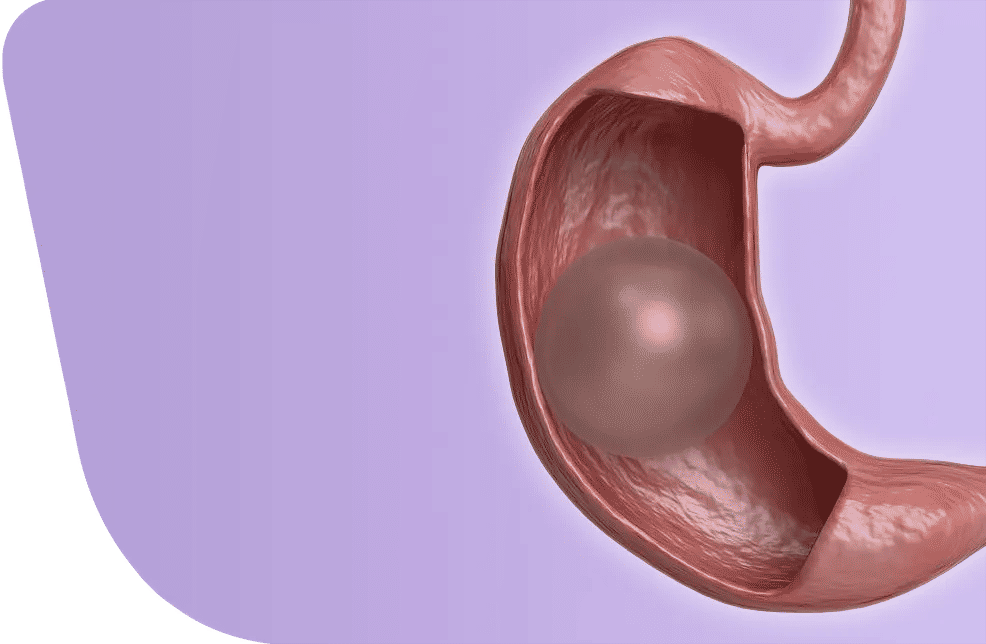- - Quick Comparison of Gastric Sleeve vs Gastric Bypass
- - Gastric Sleeve vs Gastric Bypass
- - What is the Difference Between Gastric Sleeve and Gastric Bypass?
- - What is Gastric Sleeve Surgery vs Gastric Bypass?
- - Gastric Bypass vs Sleeve Cost
- - Gastric Sleeve vs Gastric Bypass Pros and Cons
- - What is the Advantage of Bypass Surgery vs Gastric Sleeve?
- - Recovery of Gastric Sleeve vs. Gastric Bypass
- - Outcomes of Gastric Sleeve vs. Gastric Bypass
- - Gastric Sleeve vs. Gastric Bypass 10 Years Later
- - Complications of Gastric Sleeve vs. Gastric Bypass
- - Success Rate of Gastric Sleeve vs. Gastric Bypass in Turkey
- - What Is Better Gastric Sleeve vs. Gastric Bypass?
- - Gastric Sleeve vs. Gastric Bypass Expert Guidance
Gastric sleeve and gastric bypass are two popular bariatric surgeries for weight loss, but they differ in approach, complexity, side effects, and long-term outcomes. Gastric sleeve reduces the stomach size by about 80%, limiting food intake and appetite, while gastric bypass creates a small stomach pouch and reroutes the small intestine, combining restriction with reduced calorie absorption.
Choosing the right procedure depends on your health, BMI, diabetes status, GERD, and personal goals. Sleeve is simpler and safer, whereas bypass often leads to faster weight loss and better diabetes control—but with higher risks and lifelong nutrient monitoring. Understanding these differences helps you make an informed decision with your surgeon.
At Turkey Luxury Clinics, we guide you step by step to compare gastric bypass and sleeve, helping you choose the best option for your health and weight loss goals.
Quick Comparison of Gastric Sleeve vs Gastric Bypass
| Feature | Gastric Sleeve | Gastric Bypass |
| Procedure | Removes part of the stomach | Small pouch + intestine reroute |
| Weight Loss | Moderate & Sustainable | Faster & greater |
| Diabetes | Improves | Often better remission |
| GERD | May worsen | Often improves |
| Nutritional Risk | Lower | Higher, lifelong supplements |
| Recovery | Shorter | Longer, stricter diet |
| Reversibility | No | Rarely |
Gastric Sleeve vs Gastric Bypass
Gastric bypass reroutes the digestive tract to create a small stomach pouch and bypasses part of the small intestine,limiting food consumption while also affecting nutrient absorption.
This often leads to faster initial weight loss but carries higher risks of complications, such as dumping syndrome. In contrast, gastric sleeve removes about 80% of the stomach to form a smaller, tube-shaped stomach, primarily restricting food intake and reducing hunger hormones. It is less invasive and often preferred for patients at higher risk of ulcers, though weight loss may be slightly slower compared to bypass.
Key Differences gastric bypass vs sleeve at a Glance
- Surgical Complexity: Sleeve is simpler; Bypass is more complex.
- Absorption: Sleeve doesn't alter intestinal absorption; Bypass reduces it.
- Weight Loss: Bypass generally leads to more weight loss.
- Complications: Bypass has risks like dumping syndrome; Sleeve avoids this but bypass may improve GERD.
Both reduce food intake and appetite hormones (ghrelin), but bypass alters the digestive tract more significantly, leading to faster initial weight loss and greater diabetes improvement, while sleeve preserves normal digestion better.
What is the Difference Between Gastric Sleeve and Gastric Bypass?
The main difference between the two surgeries lies in how the surgeon creates the new stomach pouch. Gastric bypass reroutes the digestive tract to form a small stomach pouch and bypasses part of the small intestine, producing a dual effect on weight loss by reducing both food intake and nutrient absorption. This often leads to faster initial weight loss than gastric sleeve, which can be crucial when rapid results are needed. Gastric bypass also carries higher risks of complications, such as dumping syndrome, nutrient deficiencies, and other surgical risks, compared to gastric sleeve.
Gastric sleeve removes about 80% of the stomach to form a smaller, tube-shaped stomach, mainly limiting the amount of food eaten and decreasing appetite-stimulating hormones. It is less invasive, generally safer, and associated with faster recovery, which makes it the preferred option for patients at higher risk of ulcers, though weight loss may be slightly slower than with bypass. Another key difference is that gastric sleeve is irreversible, whereas gastric bypass can be technically reversed.
Key differences between gastric bypass vs sleeve:
Gastric Sleeve (Sleeve Gastrectomy)
- Procedure: Surgeon removes about 80% of the stomach, leaving a smaller, banana-shaped pouch.
- Mechanism: Primarily restrictive (limits food volume) and reduces ghrelin (hunger hormone).
- Pros: Less invasive, faster recovery, lower ulcer risk (good for smokers/NSAID users).
- Cons: Irreversible removal of stomach, potentially slower weight loss.
Gastric Bypass (Roux-en-Y)
- Procedure: Creates a small stomach pouch and reroutes the small intestine to it, bypassing most of the stomach and duodenum.
- Mechanism: Restrictive (small pouch) AND malabsorptive (bypasses intestine).
- Pros: More significant weight loss potential, often resolves type 2 diabetes quickly, faster initial loss.
- Cons: More complex/invasive, higher risk of dumping syndrome, vitamin deficiencies, and ulcers.
What is Gastric Sleeve Surgery vs Gastric Bypass?
Sleeve is simpler and irreversible, while bypass is more complex, alters the digestive tract more, providing stronger metabolic effects, impacting nutrient absorption, and requiring stricter monitoring.
Sleeve is simpler and irreversible, while bypass is more complex, alters the digestive tract, provides stronger metabolic effects, affects nutrient absorption, and requires stricter monitoring. Gastric bypass often leads to greater weight loss and better control of conditions like diabetes, but it also carries higher risks of nutrient deficiencies and dumping syndrome. On the other hand, gastric sleeve removes part of the stomach to create a smaller, banana-shaped pouch, resulting in slightly slower but still substantial weight loss, with fewer surgical complications and lower risk of malabsorption. However, it is irreversible and may worsen reflux. The best choice depends on individual health, goals, and existing conditions, and should be made in consultation with a qualified surgeon.
What is Gastric Sleeve Surgery?
Gastric sleeve surgery (sleeve gastrectomy) is a weight-loss operation that removes about 80% of the stomach, leaving a narrow, banana-shaped "sleeve" that significantly restricts food intake and reduces the production of hunger-stimulating hormones, leading to substantial weight loss by making you feel full with much less food. It's a minimally invasive, laparoscopic procedure that doesn't reroute the intestines, making it simpler than other weight-loss surgeries and reducing risks like intestinal blockage.
Gastric sleeve surgery is a bariatric procedure that removes about 80% of the stomach, leaving a narrow, tube-shaped stomach.
This smaller stomach reduces how much food you can eat and lowers hunger hormones like ghrelin, resulting in long-term weight loss. It’s performed laparoscopically and doesn’t involve altering the intestines, which means fewer nutritional side effects compared to bypass.
How Does Gastric Sleeve Work?
Gastric sleeve surgery, also known as sleeve gastrectomy, works by reducing the size of the stomach, thus restricting food intake and reducing the production of hunger hormones.
The procedure is performed laparoscopically and does not alter the digestive pathway, making it simpler than gastric bypass in terms of anatomy and nutrient absorption.
What is Gastric Bypass Surgery?
Gastric bypass surgery, often Roux-en-Y, is a weight-loss procedure that shrinks the stomach into a small pouch and reroutes the small intestine, reducing food intake and calorie absorption to promote significant, long-term weight loss and resolve obesity-related health issues like type 2 diabetes, high blood pressure, and sleep apnea. It restricts food volume by creating a small stomach pouch and bypasses the upper small intestine, limiting calorie and nutrient absorption.
Gastric bypass surgery, also known as Roux-en-Y gastric bypass (RYGB), is a type of weight-loss surgery that alters the stomach and small intestine to help people with obesity lose weight.
It works by reducing the size of the stomach and bypassing a portion of the small intestine, which limits the amount of food that can be eaten and the number of calories absorbed. This limits food intake and reduces calorie absorption, leading to rapid and sustained weight loss. It’s often recommended for patients with severe obesity, type 2 diabetes, or a need for stronger metabolic control.
How Does Gastric Bypass Work?
Gastric bypass surgery, also known as Roux-en-Y gastric bypass, works by both restricting the amount of food the stomach can hold and altering the way food is absorbed in the digestive system.
This is achieved by creating a small stomach pouch and connecting it directly to the small intestine, bypassing a significant portion of the stomach and the upper part of the small intestine. This leads to weight loss through reduced food intake and changes in how the body absorbs calories and nutrients.
Gastric Bypass vs Sleeve Cost
Gastric bypass generally costs more than gastric sleeve surgery because it's a more complex procedure, with sleeve costs often 20-25% less, though prices vary significantly by location, surgeon, hospital, and insurance, ranging from around $10,000-$30,000+ in the US without insurance, while bypass might be $18,000-$35,000+
In Turkey, gastric sleeve surgery costs $3,500–$5,500, while gastric bypass ranges from $4,500–$6,500.
Bypass surgery is generally more expensive due to the complexity of the procedure and longer operating time; however, both surgeries are significantly more affordable in Turkey than in Western countries.
Gastric Sleeve vs Gastric Bypass Pros and Cons
Gastric sleeve is less invasive, has a quicker recovery, and fewer nutritional issues. Gastric bypass results in more weight loss and better diabetes control but has a higher risk of complications.
Gastric sleeve is simpler,less invasive, safer, and avoids intestinal rerouting, but it offers slightly less weight loss and may worsen reflux.
Gastric bypass provides greater weight loss and better diabetes control due to malabsorption, but involves more complex surgery, higher risks (such as nutrient deficiencies, hernias, and dumping syndrome), and requires lifelong vitamin supplementation, making it more suitable for severe metabolic issues.
Sleeve is primarily restrictive, while bypass is both restrictive and malabsorptive, altering the digestive tract.
Here’s a direct comparison of pros and cons of gastric sleeve vs bypass to help you decide which suits your needs best:
| Factor | Gastric Sleeve | Gastric Bypass |
| Invasiveness | Less invasive | More invasive |
| Weight Loss Speed | Moderate | Faster |
| Nutritional Risks | Lower | Higher |
| Recovery Time | Shorter | Longer |
| Cost in Turkey | $3,500–$5,500 | $4,500–$6,500 |
| Complication Risk | Lower overall | Higher (e.g., dumping syndrome) |
What is the Advantage of Bypass Surgery vs Gastric Sleeve?
Gastric bypass surgery generally offers greater and faster weight loss compared to gastric sleeve, along with more significant improvements in obesity-related conditions such as type 2 diabetes and high blood pressure. On the other hand, gastric sleeve is a less complex and safer procedure, with quicker recovery and lower risks of complications, yet it still provides substantial weight loss and a high success rate.
Advantages of Gastric Sleeve
- Less invasive: No intestinal rerouting, which lowers surgical complexity and risk.
- Lower risk of nutritional deficiencies: Since nutrient absorption is not altered, patients are less likely to experience long-term vitamin and mineral deficiencies.
- Shorter operative time and hospital stay: The procedure is faster and often allows for quicker discharge.
- Lower complication rate: One of important advantages is the lower risks that patients can safely choose, especially for patients with moderate obesity.
Advantages of Gastric Bypass
- Higher weight loss potential: Especially for patients with high BMI or severe obesity.
- Better for metabolic conditions: More effective in improving type 2 diabetes, PCOS, and GERD.
- Reduced acid reflux: Often used when gastric sleeve is not recommended due to severe reflux.
Gastric sleeve is usually preferred for patients looking for a less complex surgery with fewer long-term nutritional concerns, while gastric bypass is often recommended for patients with obesity-related diseases or a need for more aggressive weight loss.
Discover: Gastric Sleeve Revision in Turkey: High Success Rates & Affordable Prices
Recovery of Gastric Sleeve vs. Gastric Bypass
Recovery from gastric sleeve is typically faster and involves fewer complications than gastric bypass. Sleeve patients often return to normal activities within 2–3 weeks, while bypass recovery may take 3–4 weeks with stricter long-term nutritional monitoring.
Gastric Sleeve Recovery Timeline
- Hospital stay: 1 to 2 days
- Return to daily activities: Within 2 to 3 weeks
- Diet progression: Clear liquids → pureed foods → soft diet over 4–6 weeks
- Pain and discomfort: Typically milder, with fewer digestive adjustments
- Nutritional supplementation: Required, but less intensive than bypass
Gastric Bypass Recovery Timeline
- Hospital stay: 2 to 3 days
- Return to daily activities: Often within 3 to 4 weeks
- Diet progression: Similar to sleeve but with stricter portion control
- Pain and fatigue: May be slightly more pronounced due to dual anatomical changes
- Nutritional supplementation: Lifelong use of multivitamins, calcium, B12, and iron is essential
Although both surgeries require commitment to lifestyle changes and follow-up, gastric sleeve typically involves a faster and more straightforward recovery, while gastric bypass may demand closer medical supervision and long-term nutrient management.
Outcomes of Gastric Sleeve vs. Gastric Bypass
Gastric bypass usually leads to slightly more weight loss and better diabetes control than gastric sleeve. However, both procedures are highly effective in improving obesity-related conditions when combined with lifestyle changes.
1. Gastric Sleeve vs Gastric Bypass Weight loss outcomes
Gastric sleeve patients typically lose 60–70% of excess weight, while gastric bypass patients often achieve 70–80%. Bypass tends to produce faster initial results and slightly better long-term weight maintenance, especially with strict adherence to lifestyle changes.
- Gastric sleeve: Patients typically lose 60–70% of their excess weight within 12 to 18 months.
- Gastric bypass: Patients may lose 70–80% of excess weight within the same timeframe, often with a faster initial drop in the first 6 months.
2. Gastric Sleeve vs Gastric Bypass Metabolic and health improvements
- Both procedures improve conditions such as type 2 diabetes, hypertension, sleep apnea, and high cholesterol.
- Gastric Bypass tends to have a stronger and more immediate effect on blood sugar control, especially in insulin-dependent patients.
3. Gastric Sleeve vs Gastric Bypass Long-Term
In terms of weight loss, gastric bypass generally produces more significant results, though gastric sleeve remains highly effective, with differences often falling within clinically equivalent margins for many patients.
Regarding diabetes and other metabolic conditions, gastric bypass tends to show higher rates of remission and improvement, but gastric sleeve also delivers substantial benefits.
For GERD, gastric bypass often improves symptoms, whereas gastric sleeve can sometimes cause or worsen the condition. Finally, gastric sleeve is associated with fewer nutritional deficiencies compared to gastric bypass.
Despite these differences, both procedures offer significant improvements in quality of life and cardiovascular risk factors for many patients, with outcomes depending on individual factors.
Gastric bypass in the long term typically leads to greater total weight loss and higher excess BMI reduction, especially over the long term. Patients often experience superior improvements in type 2 diabetes remission and lipid levels, along with better control or even resolution of GERD. However, in the long term, bypass carries a higher risk of micronutrient deficiencies, including iron and vitamin B12, due to the rerouting of the intestines. Patients may also face an increased risk of gastrointestinal issues, such as ulcers from NSAID use.
Gastric sleeve is a simpler and generally safer procedure, with fewer short- and long-term complications compared to gastric bypass). In the long term gastric sleeve carries a lower risk of nutritional deficiencies while still providing effective weight loss and significant improvements in comorbidities, often comparable to GB for many conditions."
However, it typically results in slightly less total weight loss than gastric bypass (GB) on average. It carries a higher risk of developing new or worsening GERD and is an irreversible procedure
Read more: How to Lose Weight 2 Years After Gastric Sleeve?
4. Gastric Sleeve vs Gastric Bypass Quality of Life and Lifestyle
- Both procedures require permanent lifestyle changes including diet, exercise, and medical follow-up.
- Gastric sleeve patients may find it easier to maintain normal digestion but must watch for reflux symptoms.
- Gastric bypass patients often need stricter vitamin supplementation and monitoring but benefit from greater metabolic improvements.
Gastric Sleeve vs. Gastric Bypass 10 Years Later
sleeve gastrectomy vs bypass after 10 years, both gastric sleeve and gastric bypass deliver significant and sustainable weight loss.
However, gastric bypass generally results in slightly greater long-term weight maintenance and better remission of type 2 diabetes.
Gastric sleeve patients may experience gradual weight regain over time, especially without strict lifestyle changes, but face fewer nutritional complications.
The long-term choice depends on individual health conditions, goals, and ability to adhere to post-op care.
Complications of Gastric Sleeve vs. Gastric Bypass
Gastric sleeve has fewer complications due to its simpler anatomy, while gastric bypass carries higher risks of nutrient deficiencies and internal hernias.
Both are safe when performed by experienced surgeons, but they differ in long-term risk profiles.
Gastric Sleeve Complications
- Staple line leaks (rare but serious): May occur at the site where the stomach was removed.
- Bleeding and infection (short-term risks): Common to most surgeries.
- Gastroesophageal reflux (GERD): Can worsen or develop after surgery.
- Stricture or narrowing of the sleeve: May cause nausea or difficulty eating.
- Lower risk of nutrient deficiency compared to bypass.
Gastric Bypass Complications
- Dumping syndrome: A reaction to high-sugar foods that causes nausea, cramps, and diarrhea.
- Ulcers at the connection between the stomach and intestine.
- Internal hernias or bowel obstructions: May develop due to anatomical changes.
- Higher risk of vitamin and mineral deficiencies (iron, B12, calcium, etc.).
- Anastomotic leaks: Rare but potentially life-threatening.
While both procedures are considered safe and effective when performed by experienced surgeons, long-term outcomes depend on patient adherence to lifestyle changes, nutritional monitoring, and medical follow-up—especially in the case of gastric bypass, which involves more complex anatomical changes.
Success Rate of Gastric Sleeve vs. Gastric Bypass in Turkey
Gastric bypass has a success rate of 70–85% for sustained weight loss, while the gastric sleeve ranges between 60–75%.
Success is defined as maintaining at least 50% excess weight loss (EWL) and improving related health conditions long-term.
Both gastric sleeve and gastric bypass show high success rates when it comes to long-term weight loss and improvement in obesity-related conditions.
- Gastric Bypass: Success rate ranges between 70–85% in terms of sustained weight loss and comorbidity remission after 5+ years.
- Gastric Sleeve: Success rates are slightly lower, around 60–75%, but still considered highly effective—especially for patients with moderate obesity.
What Is Better Gastric Sleeve vs. Gastric Bypass?
Neither gastric bypass nor sleeve gastrectomy is universally “better.” The ideal choice depends on individual health, BMI, and conditions like type 2 diabetes or GERD. Gastric bypass often provides greater initial weight loss and higher rates of diabetes remission but carries higher risks and a greater potential for nutritional deficiencies. The gastric sleeve is simpler, safer, and less invasive, though weight loss may be slightly slower and long-term results slightly less dramatic. A surgeon’s personalized recommendation is essential.
Key considerations to choose between gastric sleeve and bypass:
- High BMI (>50): Gastric bypass might be more effective.
- Type 2 Diabetes: Bypass often achieves greater remission.
- GERD/Acid Reflux: Bypass may be preferable, as the sleeve can worsen reflux.
- Nutritional Concerns or Medication Use: Sleeve may be better if absorption issues are a concern.
- Risk Tolerance: Sleeve is generally safer and less complex.
Gastric bypass is better for patients with severe obesity or diabetes needing rapid results, while gastric sleeve is ideal for those seeking a safer, simpler procedure.
The best choice depends on your health profile, goals, and ability to maintain lifestyle changes.
- Gastric Bypass is often recommended for patients with higher BMI, severe type 2 diabetes, or those who need faster and more aggressive weight loss results.
It’s also more effective in cases where metabolic correction is a priority. However, it requires lifelong nutritional follow-up due to the intestinal rerouting.
- Gastric Sleeve may be better suited for patients seeking a safer, simpler procedure with fewer long-term nutritional risks.
While weight loss may occur more gradually, the sleeve still delivers sustainable results when combined with lifestyle changes.
It’s often preferred by those looking for a more straightforward recovery and lower complication rate.
In terms of pure weight loss and metabolic effect, bypass may have a slight edge. But for patients concerned about long-term supplements or surgical complexity, sleeve offers excellent results with fewer anatomical changes.
Gastric Sleeve vs. Gastric Bypass Expert Guidance
Still weighing your options? Whether you're leaning toward gastric sleeve or considering gastric bypass, making the right choice starts with trusted medical advice.
At Turkey Luxury Clinics, our bariatric experts provide free, personalized consultations to help you fully understand both procedures—from expected results to recovery and long-term care.














.webp)
.webp)
.webp)
.webp)

